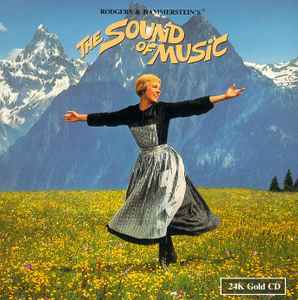- 04 Dec 2022 16:15
#15257936
I had the pleasure of seeing a professional interpretation of La Mélodie de Bonheur recently. This is the French version of the musical by Rodgers and Hammerstein, which recounts the story of a nun who leaves the content to marry a rich man with 7 kids.
Of course, the climax of the story (which takes place in Austria) is the family fleeing over the mountains into Switzerland to escape the Nazis... right after winning a local folk musical festival.

Many talented media critics have taken a stab at the political worldview of the piece:
He goes on to explain how the musical (and movie) attempted to define an "Austrian" culture and patriotism, with disciplinarian Austrian patriarchs raising lots of kids with humanistic Roman Catholic mothers. All of this, of course, being fake and politically convenient for the Anglo audience (and the writers of the musical).
soundtrack
(my own views in next post)
Of course, the climax of the story (which takes place in Austria) is the family fleeing over the mountains into Switzerland to escape the Nazis... right after winning a local folk musical festival.

Many talented media critics have taken a stab at the political worldview of the piece:
Robert von Dassanowsky wrote:Cinema’s manipulative power as a tool in the enforcement of ideology came of age in the mid-twentieth century and has never abated.
Perhaps one of the more negative aspects of film’s influence on the world audience is the conveyance of a simplistic good/bad dichotomy. National and international stereotypes ranging from examples of subtle distinction to virulent racism have always been the easy danger of cinema. Here, also, a history written by the victors is undeniable and tends to remain emotional fodder.
He goes on to explain how the musical (and movie) attempted to define an "Austrian" culture and patriotism, with disciplinarian Austrian patriarchs raising lots of kids with humanistic Roman Catholic mothers. All of this, of course, being fake and politically convenient for the Anglo audience (and the writers of the musical).
And what of Austria and the Austrian? Most English-speaking audiences would not know how to respond. If they are wise enough to know that Austrians speak German not Austrian and are found in Central Europe not in the Tasmanian Sea, they would equate Austria with Germany and perhaps be partially correct.
Peter Levine wrote:The von Trapp family is threatened by Nazis. The hero of the film, Captain von Trapp, explicitly opposes Nazism. But he doesn’t object to the obvious problems: Antisemitism, militarism, or authoritarianism. His concern is the threat that Nazi Germany poses to Austrian independence. That stance had always struck me as implausible as well as offensive. Austria, after all, was the accidental product of defeat in World War I. It was only a few years old at the time the movie is set (“The Last Golden Years of the Thirties”): a rump, landlocked, German-speaking, Tyrolean republic created very much against the wishes of people like Captain van Trapp, a former officer of the Austro-Hungarian Imperial Navy....
The invented nationalism of the Ständestaat combined several distinctive elements: the Austro-Hungarian military aristocracy, the Catholic church, Tyrolean peasant culture and folk music, patriarchal families, a peaceable and friendly foreign policy, and the Baroque heritage. Once Maria and Georg are married, and the former naval officer is the leader of a large family folk music ensemble from Baroque Salzburg, the Ständestaat ideal is complete.
soundtrack
(my own views in next post)
***
The goal is to use Afghanistan to wash money out of the tax bases of the US and Europe through Afghanistan and back into the hands of a transnational security elite.
The goal is an endless war, not a successful war.
— Julian Assange
The goal is to use Afghanistan to wash money out of the tax bases of the US and Europe through Afghanistan and back into the hands of a transnational security elite.
The goal is an endless war, not a successful war.
— Julian Assange















 - By Pants-of-dog
- By Pants-of-dog - By Tainari88
- By Tainari88